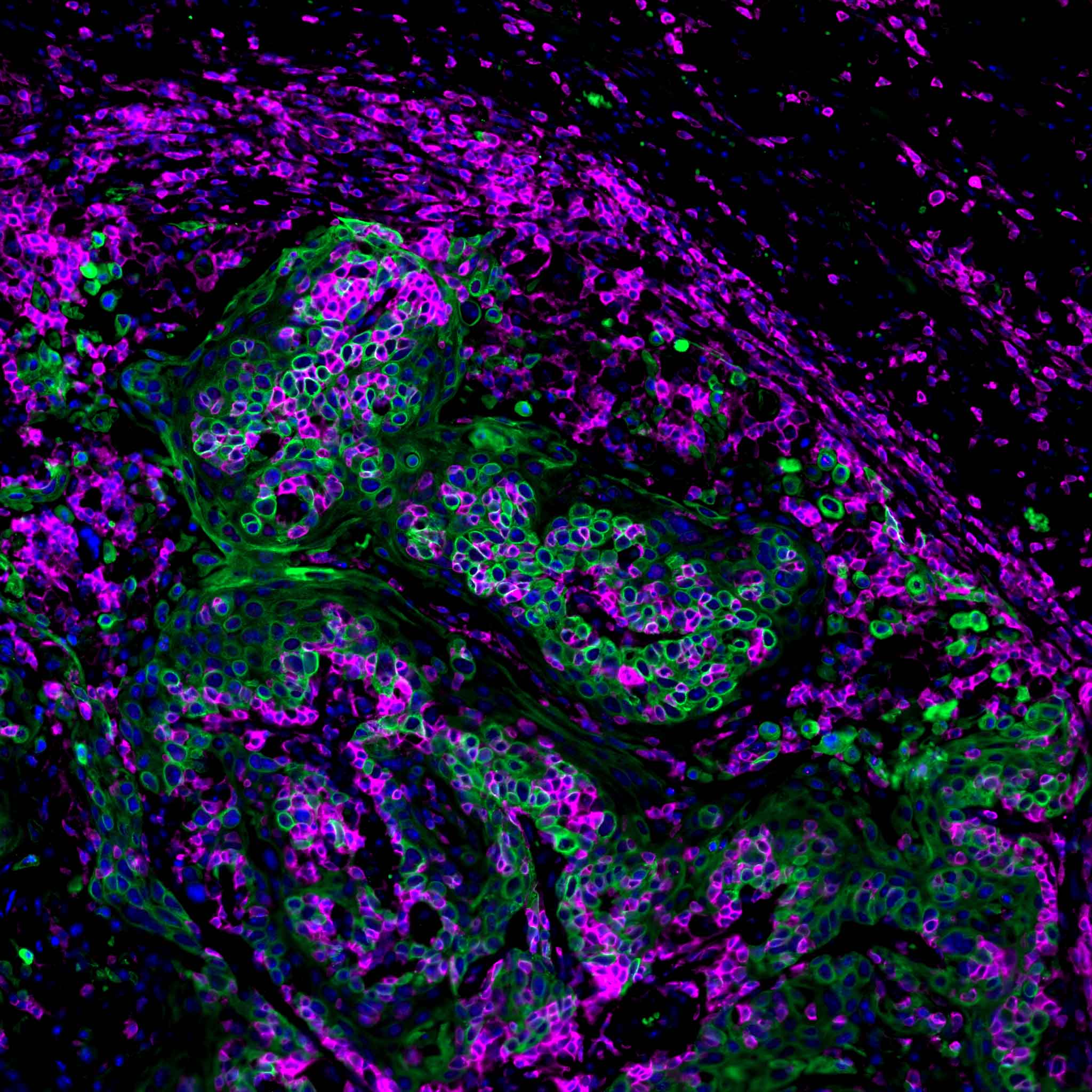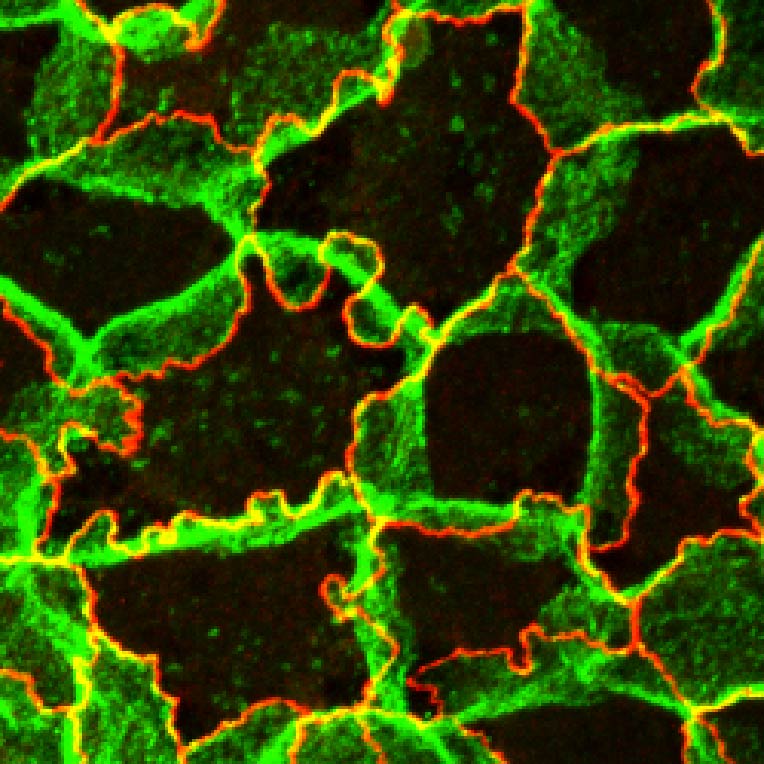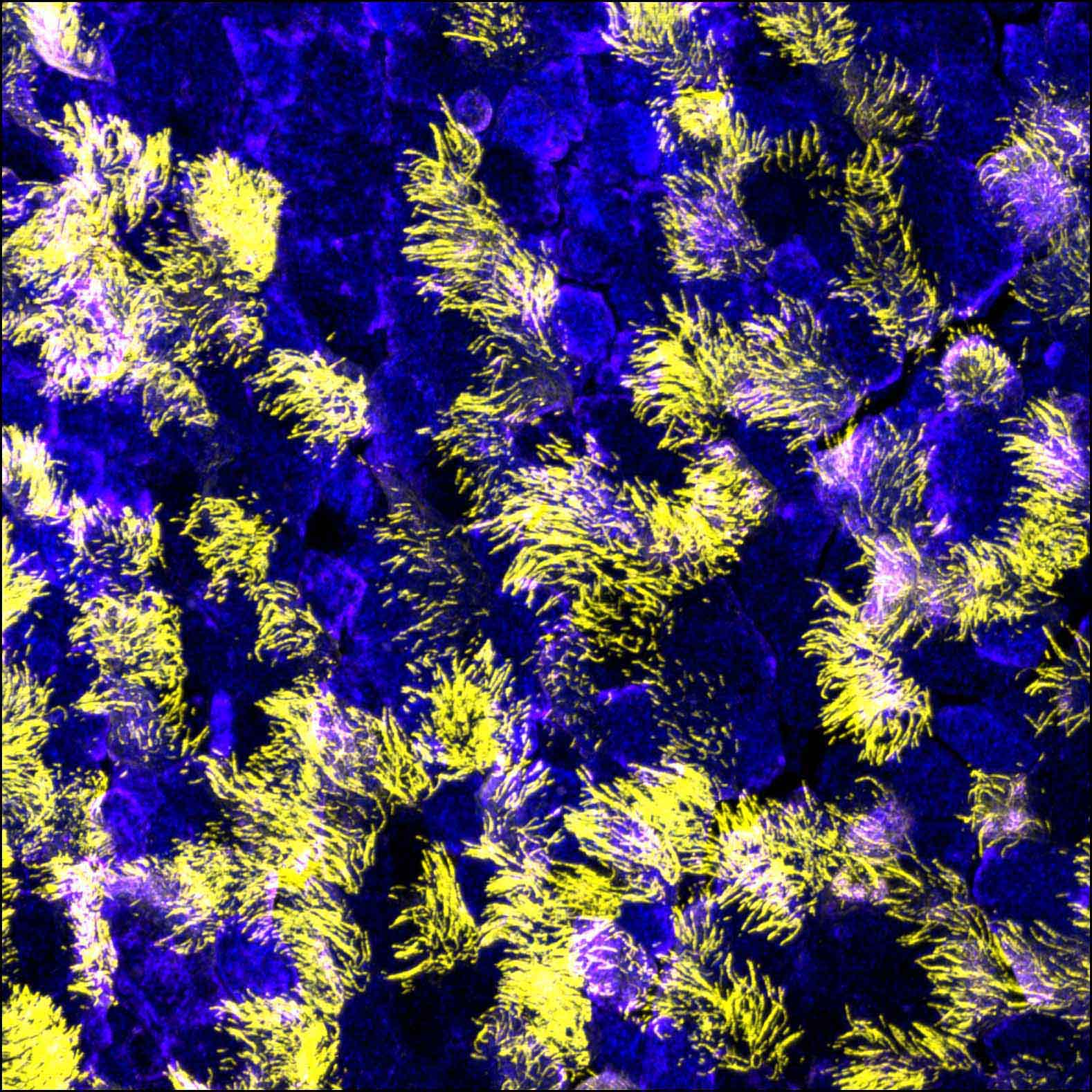- Title Assistant Professor
- Education PhD: University of North Carolina
Post-Doctoral Training: Brigham and Women’s Hospital & Harvard Medical School - Office K1
- Web Address http://Thelyonslab.com
- Email smlyons1@bu.edu
- Area of Interest RNA metabolism during stress
Adverse stimuli, such as oxidative stress, thermal shock, viral infection, amongst others, consistently act upon cells to which they must respond to promote survival. Despite the variety of stresses, cells react similarly by conserving and redirecting energetic reserves from anabolic processes towards pro-survival processes. Precise modulation of a stress response is critical to organismal homeostasis. Failure to mount an effective response will result in cell death while a hyperactive response can lead to unrestrained proliferation or inflammation. Such situations are typically seen in neurodegenerative diseases and cancer, respectively.
The long-term goal of my laboratory is to understand how cells reprogram gene expression in response to stress, while specifically focusing on post-transcriptional regulation. Currently, there are two aspects to this response that my lab is investigating:
- Control of ribosomal RNA (rRNA) processing: Ribosome biogenesis is a major energetic task of growing cells; thus, this is a significant point of regulation during stress. Mature ribosomes contain 80 proteins and four non-coding RNAs. We aim to understand how maturation of rRNAs, which constitute the majority of all cellular RNA, is regulated under different conditions.
- Regulation of mRNA translation during stress: The activation of the integrated stress response (ISR) directly targets the translational machinery resulting in the rapid inhibition of protein synthesis. We aim to understand the mechanisms by which this occurs and how some mRNAs escape ISR-dependent regulation.
Laboratory Members
Kate Lewis – Undergraduate researcher
positions available—contact Dr. Lyons
Representative Publications
-
Nelson EV, Ross SJ, Olejnik J, Hume AJ, Deeney DJ, King E, Grimins AO, Lyons SM, Cifuentes D, Mühlberger E. The 3′ Untranslated Regions of Ebola Virus mRNAs Contain AU-Rich Elements Involved in Posttranscriptional Stabilization and Decay. J Infect Dis. 2023 Nov 13; 228(Supplement_7):S488-S497. PMID: 37551415;
-
Werder RB, Berthiaume KA, Merritt C, Gallagher M, Villacorta-Martin C, Wang F, Bawa P, Malik V, Lyons SM, Basil MC, Morrisey EE, Kotton DN, Zhou X, Cho MH, Wilson AA. The COPD GWAS gene ADGRG6 instructs function and injury response in human iPSC-derived type II alveolar epithelial cells. Am J Hum Genet. 2023 Oct 05; 110(10):1735-1749.PMID: 37734371;
-
Reiss M, Keegan J, Aldrich A, Lyons SM, Flynn RL. The exoribonuclease XRN2 mediates degradation of the long non-coding telomeric RNA TERRA. FEBS Lett. 2023 Jul; 597(14):1818-1836. PMID: 37191774
- Paget M, Cadena C, Ahmad S. Want H, Jordan TX, Kim E, Koo B, Lyons SM, Ivanov P, tenOever B, Mu X, Hur S. Stress Granules are shock absorbers that prevent excessive innate immune response to dsRNA. Mol. Cell. 2023. 83 (7): 1180-1196
- Akiyama Y, Lyons SM, Fay MM, Tomioka Y, Abe T, Anderson PJ, Ivanov P. Selective Cleavage at CCA Ends and Anticodon Loops of tRNAs by Stress-Induced RNases. 2022 Frontiers in Molecular Biosciences. 9:7910094
- Szaflarski W, Leśniczak-Staszak M, Sowiński M, Ojca S, Aulas A, Dave D, Malla S, Anderson P, Ivanov P, Lyons SM. Early rRNA processing is a stress-dependent regulatory event whose inhibition maintains nuclear integrity. NAR. 2022. 50 (2): 1033-1051
- Pietras P, Aulas A, Fay MM, Leśniczak-Staszak M, Sowiński M, Lyons SM, Szaflarski W, Ivanov P. Translation inhibition and suppression of stress granule formation by cisplatin. Biomed Pharmacotherapy (2022). 145:112382
- Pietras P, Leśniczak-Staszak M, Kasprzak A, Andrzejewska M, Jopek K, Sowiński M, Rucinski M, Lyons SM, Ivanov P, Szaflarski W. MVP Expression Facilitates Tumor Cell Proliferation and Migration Supporting the Metastasis of Colorectal Cancer cells. IJMS (2021) 22(22):12121
- Hekman RM, Hume AJ, Goel RK, Abo KM, Huang J, Blum BC, Werder RB, Suder EL, Paul I, Phanse S, Youssef A, Alysandratos KD, Padhorny D, Ojha S, Mora-Martin A, Kretov D, Ash PEA, Verma M, Zhao J, Patten JJ, Villacorta-Martin C, Bolzan D, Perea-Resa C, Bullitt E, Hinds A, Tilston-Lunel A, Varelas X, Farhangmehr S, Braunschweig U, Kwan JH, McComb M, Basu A, Saeed M, Perissi V, Burks EJ, Layne MD, Connor JH, Davey R, Cheng JX, Wolozin BL, Blencowe BJ, Wuchty S, Lyons SM, Kozakov D, Cifuentes D, Blower M, Kotton DN, Wilson AA, Mühlberger E, Emili A. Actionable Cytopathogenic Host Responses of Human Alveolar Type 2 Cells to SARS-CoV-2. Mol Cell. 2021 Jan 07; 81(1):212. PMID: 33417854
-
Fernandes N, Nero L, Lyons SM, Ivanov P, Mittelmeier TM, Bolger TA, Buchan JR. Stress Granule Assembly Can Facilitate but Is Not Required for TDP-43 Cytoplasmic Aggregation. Biomolecules. 2020 09 25; 10(10). PMID: 32992901
-
Aulas A, Finetti P, Lyons SM, Bertucci F, Birnbaum D, Acquaviva C, Mamessier E. Revisiting the Concept of Stress in the Prognosis of Solid Tumors: A Role for Stress Granules Proteins? Cancers (Basel). 2020 Sep 01; 12(9). PMID: 32882814
-
Lyons SM, Kharel P, Akiyama Y, Ojha S, Dave D, Tsvetkov V, Merrick W, Ivanov P, Anderson P. eIF4G has intrinsic G-quadruplex binding activity that is required for tiRNA function. Nucleic Acids Res. 2020 06 19; 48(11):6223-6233. PMID: 32374873
-
Mineo M, Lyons SM, Zdioruk M, von Spreckelsen N, Ferrer-Luna R, Ito H, Alayo QA, Kharel P, Giantini Larsen A, Fan WY, Auduong S, Grauwet K, Passaro C, Khalsa JK, Shah K, Reardon DA, Ligon KL, Beroukhim R, Nakashima H, Ivanov P, Anderson PJ, Lawler SE, Chiocca EA. Tumor Interferon Signaling Is Regulated by a lncRNA INCR1 Transcribed from the PD-L1 Locus. Mol Cell. 2020 06 18; 78(6):1207-1223.e8. PMID: 32504554
-
Ojha S, Malla S, Lyons SM. snoRNPs: Functions in Ribosome Biogenesis. Biomolecules. 2020 05 18; 10(5). PMID: 32443616
-
Sanders DW, Kedersha N, Lee DSW, Strom AR, Drake V, Riback JA, Bracha D, Eeftens JM, Iwanicki A, Wang A, Wei MT, Whitney G, Lyons SM, Anderson P, Jacobs WM, Ivanov P, Brangwynne CP. Competing Protein-RNA Interaction Networks Control Multiphase Intracellular Organization. Cell. 2020 04 16; 181(2):306-324.e28. PMID: 32302570
-
Smith JA, Curry EG, Blue RE, Roden C, Dundon SER, Rodríguez-Vargas A, Jordan DC, Chen X, Lyons SM, Crutchley J, Anderson P, Horb ME, Gladfelter AS, Giudice J. FXR1 splicing is important for muscle development and biomolecular condensates in muscle cells. J Cell Biol. 2020 04 06; 219(4). PMID: 32328638
-
Kedersha N, Panas MD, Achorn CA, Lyons S, Tisdale S, Hickman T, Thomas M, Lieberman J, McInerney GM, Ivanov P, Anderson P. Correction: G3BP-Caprin1-USP10 complexes mediate stress granule condensation and associate with 40S subunits. J Cell Biol. 2020 Jan 06; 219(1). PMID: 31851327
-
Lyons SM, Fay MM, Ivanov P. The role of RNA modifications in the regulation of tRNA cleavage. FEBS Lett. 2018 09; 592(17):2828-2844. PMID: 30058219;
-
Lyons SM, Gudanis D, Coyne SM, Gdaniec Z, Ivanov P. Author Correction: Identification of functional tetramolecular RNA G-quadruplexes derived from transfer RNAs. Nat Commun. 2017 12 05; 8(1):2020. PMID: 29209051
Complete list can be found at BU Profiles
View all people




